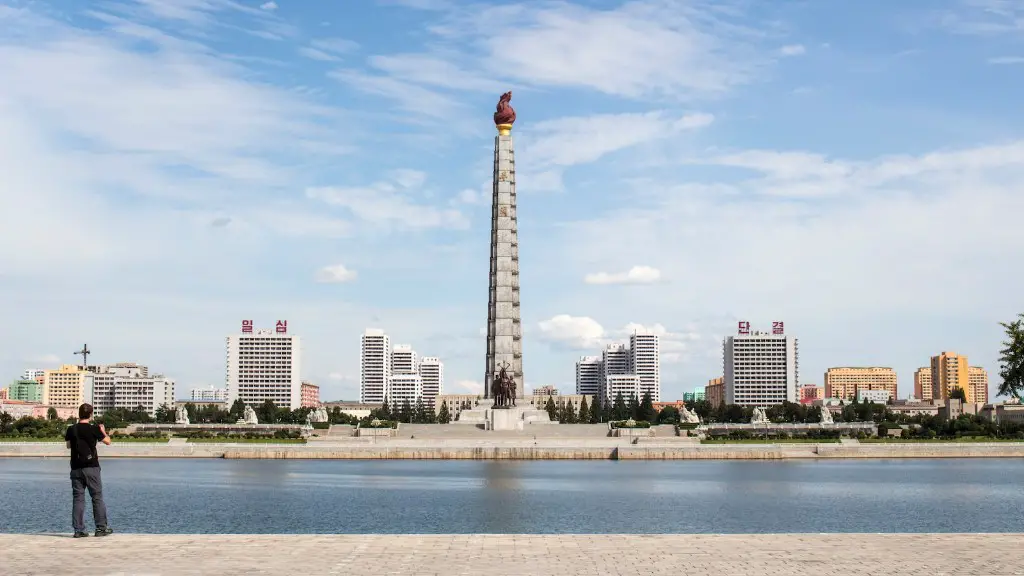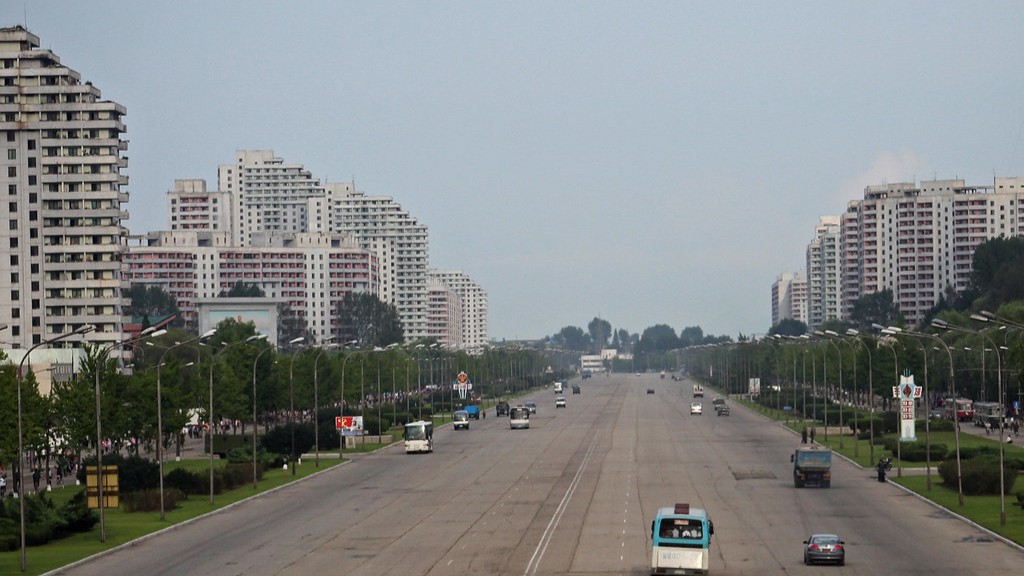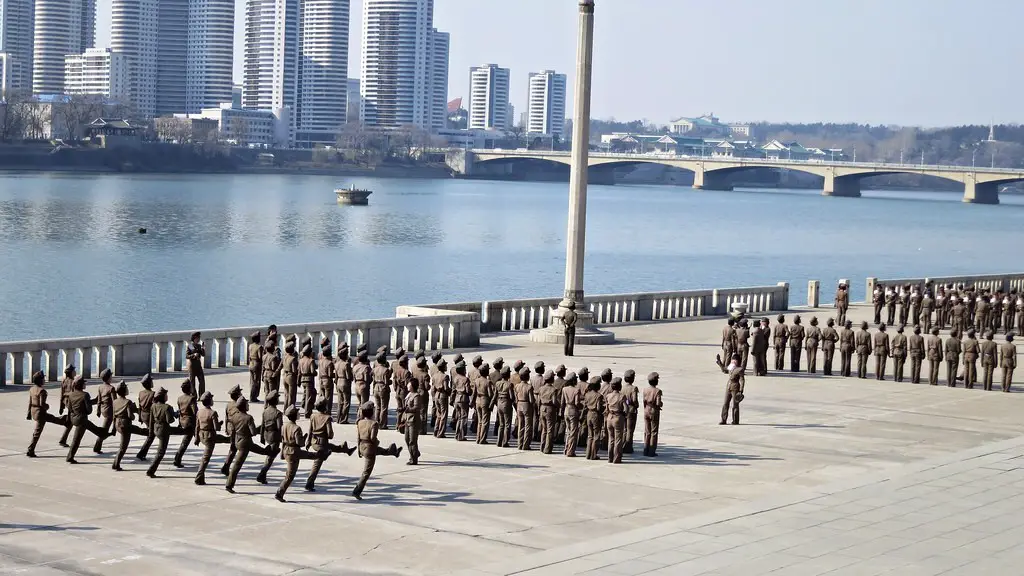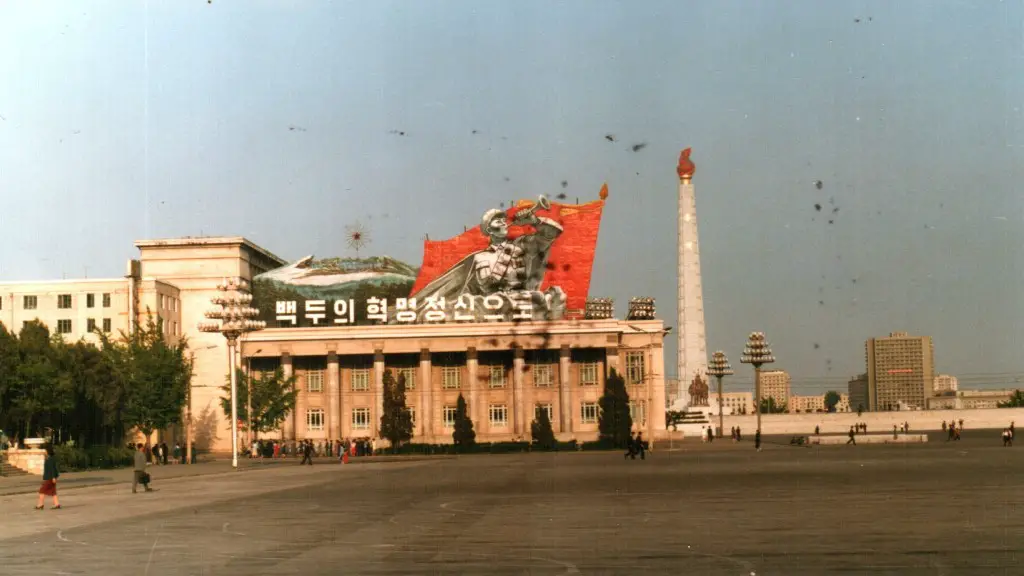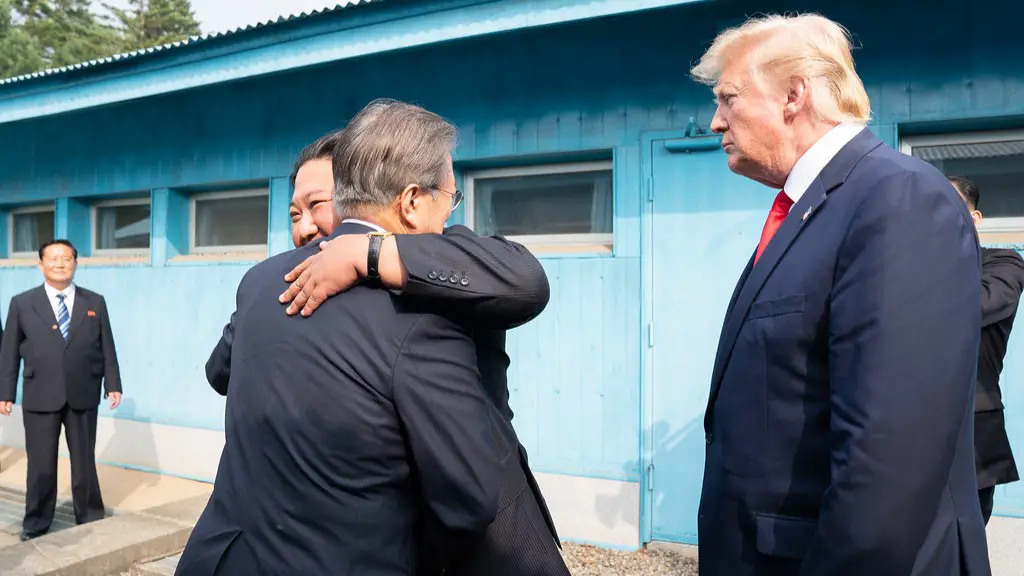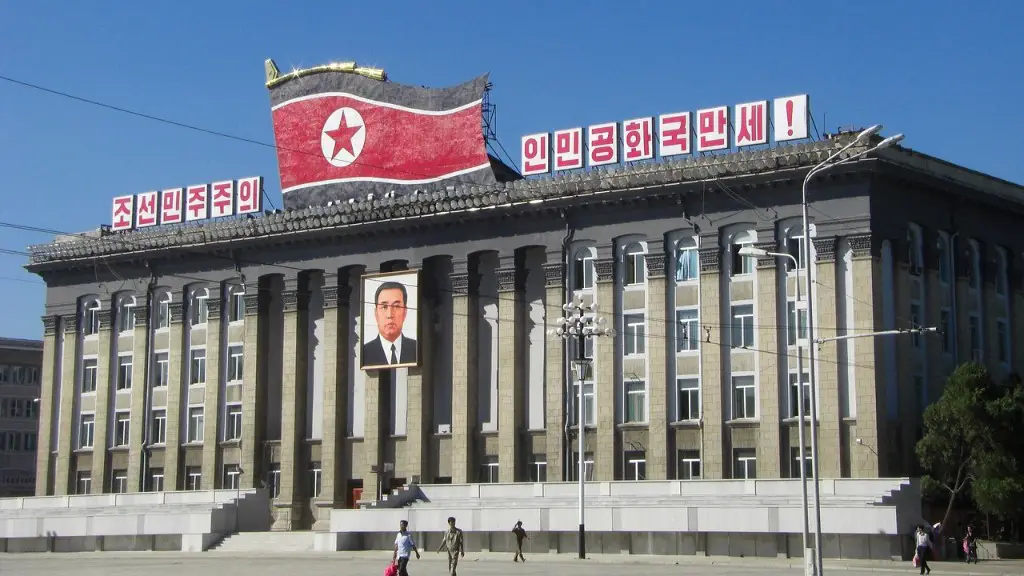North Korea is a hermit kingdom on the Korean Peninsula, causing it to be one of the most isolated countries in the world. North Korea is known for its self-imposed hermit status, which manifests itself in multiple ways not seen in many countries. North Korea has been isolated for decades, and this sense of seclusion has grown even stronger in recent years. Here we will discuss the various reasons why North Korea is such an isolated country.
One of the primary reasons North Korea is so isolated is the fact that it is ruled by the authoritarian regime of Kim Jong-un. The government of North Korea has a fierce grip on its people and their movements, and it restricts access to the outside world. This has been made worse by the spread of the coronavirus, which has led to even more restrictions on the movement of people and goods. This has caused people to struggle to get even basic supplies and has led to economic problems.
Another major reason North Korea is isolated is that it is highly militarized. North Korea has a large army and has built up a large arsenal of nuclear arms, which leads to a great deal of tension between North Korea and the rest of the world. This makes the entire region unstable and leads to the country becoming ever more isolated from the rest of the world.
Additionally, North Korea experiences a lot of economic problems due to its heavy emphasis on military spending and its isolation from the world. North Korea relies heavily on imports from China and other countries, which has led to a poor infrastructure and lack of access to international markets. This has caused North Korea to suffer from chronic shortages of food and other supplies, leading to economic problems.
Finally, North Korea has been subject to a variety of sanctions due to its nuclear program, its human rights record, and its aggressive behavior towards other nations. This has caused even more isolation as countries around the world have chosen to distance themselves from North Korea. The sanctions have caused North Korea to be unable to access the international financial system and has further isolated it from the world.
The Impact Of Isolation On North Korean People
The isolation of North Korea has had a major impact on its people. North Koreans are living in a highly controlled and oppressive environment, where they are denied basic rights and freedoms and have almost no access to the outside world. This has led to a variety of negative effects for North Koreans, such as a lack of access to adequate healthcare, poor nutrition, and a lack of access to education. Additionally, North Korea suffers from high rates of poverty, which can be attributed to its isolation from the rest of the world.
The isolation of North Korea from the rest of the world has also had an impact on its citizens’ mental health. North Koreans lack access to accurate information, making it difficult for them to make informed decisions. Additionally, they lack the freedom to express themselves and engage in activities they may enjoy, leading to higher levels of depression and anxiety. This has been further exacerbated by the spread of Covid-19, which has forced even more restrictions on the already isolated North Korean people.
North Koreans also suffer from a lack of access to humanitarian aid. Humanitarian organizations are often denied access to North Korea, meaning that aid rarely reaches the people who need it the most. This has made it difficult for North Koreans to receive the assistance they need and has led to a further deterioration of the quality of life for many North Koreans.
Finally, North Korea’s isolation has also had a major impact on its economy. Due to its lack of access to international financial markets and its inability to benefit from global trade, North Korea’s economy is struggling. This has meant that the North Korean people have been deprived of the opportunities to improve their lives and has left them in a dire economic situation.
International Relations With North Korea
The international community has struggled to come up with a solution to North Korea’s isolation. Many countries have called for dialogue and diplomatic negotiations in order to bring an end to the crisis. However, these efforts have been largely unsuccessful due to North Korea’s reluctance to engage in talks with the outside world. This has led to a further deterioration of international relations between North Korea and the rest of the world.
In recent years, there have been some signs of progress. In 2018, North Korea participated in diplomatic talks with South Korea and the United States, and the two countries signed a historic agreement to pursue denuclearization and peace. Additionally, North Korea and the United States have held several rounds of talks, although no major progress has been made. This has led some to hope that North Korea may be slowly opening itself up to the outside world.
However, it is important to remember that North Korea is still a highly secretive and isolated country, and that there is still a long way to go before it is truly open to the world. In order for progress to be made in improving international relations with North Korea, there must be a sustained effort to engage the country in dialogue and to resolve the issues that keep it isolated.
Challenges To Ending North Korea’s Isolation
Ending North Korea’s isolation will be a challenging task for the international community. The international community has been unable to make much progress in recent years, and the dynamics of the situation have only become more complex in light of the Covid-19 pandemic. Additionally, North Korea’s continued testing of nuclear weapons and its human rights abuses have further damaged its international reputation and have isolated it even further.
The international community must also grapple with the fact that other world powers, such as China and Russia, have deep economic and military ties with North Korea, which makes it difficult to impose sanctions or take other measures. Additionally, there is little international consensus on how to approach North Korea, which has made it difficult to forge a unified strategy to end the crisis.
Furthermore, ending North Korea’s isolation will require a change in the country’s mindset. North Korea has long been a proud, defiant nation, and it is unlikely to open up to the world if it feels that the outside world is trying to impose its will on the country. In order for progress to be made, there must be a sincere effort to engage the North Korean leadership in dialogue and to address the issues that have contributed to its isolation.
International Sanctions On North Korea
In an effort to pressure North Korea to end its nuclear program and improve its human rights record, many countries have imposed strict economic sanctions on the country. The sanctions are aimed at cutting off North Korea’s access to the international financial system and its sources of income. Many countries have imposed travel bans and restrictions on North Korean goods, further isolating it from the rest of the world.
The sanctions have had some successes, as North Korea has agreed to certain restrictions and has made progress toward denuclearization. However, it is unclear whether these sanctions will be enough to bring about a true change in North Korea and end its isolation. Additionally, there are concerns that these sanctions could lead to even greater poverty and suffering for North Koreans, which could lead to further instability in the region.
Overall, the international community must be careful to find a balance between pressure and engagement when dealing with North Korea. Sanctions should be used as a tool to bring about progress, but they should not be overly punitive or used as a way to punish the North Korean people.
China’s Role In Isolating North Korea
China is one of the few countries with significant ties to North Korea, and it has played a major role in isolating the country. Many observers have argued that China does not want to see North Korea open up to the outside world, as it would lead to a decrease in Chinese influence in the region. As a result, China has sought to keep North Korea isolated and has opposed any initiatives to improve its relations with other countries.
Additionally, China is the primary source of North Korea’s imported goods, providing it with much of the food, fuel, and other supplies it needs to survive. As such, China has a great deal of leverage over North Korea, which it has used to ensure that the country remains isolated. This has led to a further deepening of North Korea’s isolation and has exacerbated the crisis.
Overall, China’s role in isolating North Korea has been a major factor in the country’s self-imposed hermit status. While the international community has struggled to make progress in finding a solution to the crisis, it is clear that China’s actions have been one of the greatest impediments to diplomacy.
The Future Of North Korea
North Korea’s future remains largely uncertain. It is unclear whether the country will continue to remain isolated from the world or if it will eventually take steps to open up to the outside world. For now, the international community is attempting to find a way to engage North Korea and bring an end to its isolation.
Ultimately, it is up to North Korea to decide its own future. The international community can only do so much to pressure the country, and it is ultimately up to North Korea’s leaders to make the decision to open up to the rest of the world. It remains to be seen if North Korea will ever embrace the opportunity to end its isolation.
